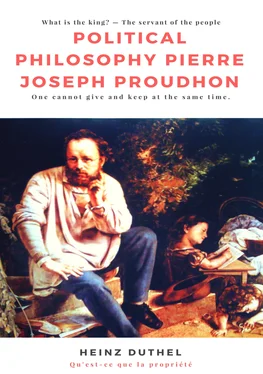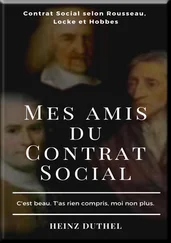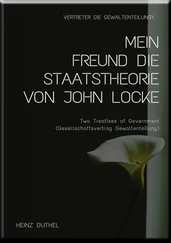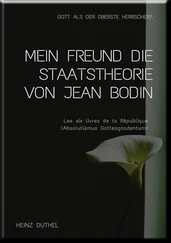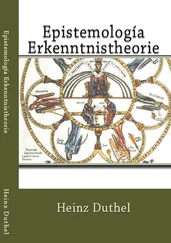That is not all. The State is a university of citizens joined together under a common law by an act of society. This act secures all in the possession of their property; guarantees to one his field, to another his vineyard, to a third his rents, and to the bondholder, who might have bought real estate but who preferred to come to the assistance of the treasury, his bonds. The State cannot demand, without offering an equivalent, the sacrifice of an acre of the field or a corner of the vineyard; still less can it lower rents: why should it have the right to diminish the interest on bonds? This right could not justly exist, unless the bondholder could invest his funds elsewhere to equal advantage; but being confined to the State, where can he find a place to invest them, since the cause of conversion, that is, the power to borrow to better advantage, lies in the State? That is why a government, based on the principle of property, cannot redeem its annuities without the consent of their holders.
The money deposited with the republic is property which it has no right to touch while other kinds of property are respected; to force their redemption is to violate the social contract, and outlaw the bondholders.
The whole controversy as to the conversion of bonds finally reduces itself to this: —
Question. Is it just to reduce to misery forty-five thousand families who derive an income from their bonds of one hundred francs or less?
Answer. Is it just to compel seven or eight millions of tax- payers to pay a tax of five francs, when they should pay only three? It is clear, in the first place, that the reply is in reality no reply; but, to make the wrong more apparent, let us change it thus: Is it just to endanger the lives of one hundred thousand men, when we can save them by surrendering one hundred heads to the enemy? Reader, decide!
All this is clearly understood by the defenders of the present system. Yet, nevertheless, sooner or later, the conversion will be effected and property be violated, because no other course is possible; because property, regarded as a right, and not being a right, must of right perish; because the force of events, the laws of conscience, and physical and mathematical necessity must, in the end, destroy this illusion of our minds.
To sum up: liberty is an absolute right, because it is to man what impenetrability is to matter, — a sine qua non of existence; equality is an absolute right, because without equality there is no society; security is an absolute right, because in the eyes of every man his own liberty and life are as precious as another's. These three rights are absolute; that is, susceptible of neither increase nor diminution; because in society each associate receives as much as he gives, — liberty for liberty, equality for equality, security for security, body for body, soul for soul, in life and in death.
But property, in its derivative sense, and by the definitions of law, is a right outside of society; for it is clear that, if the wealth of each was social wealth, the conditions would be equal for all, and it would be a contradiction to say: Property is a man’s right to dispose at will of social property. Then if we are associated for the sake of liberty, equality, and security, we are not associated for the sake of property; then if property is a natural right, this natural right is not social, but anti-social. Property and society are utterly irreconcilable institutions. It is as impossible to associate two proprietors as to join two magnets by their opposite poles. Either society must perish, or it must destroy property.
If property is a natural, absolute, imprescriptible, and inalienable right, why, in all ages, has there been so much speculation as to its origin? — for this is one of its distinguishing characteristics. The origin of a natural right! Good God! who ever inquired into the origin of the rights of liberty, security, or equality? They exist by the same right that we exist; they are born with us, they live and die with us. With property it is very different, indeed. By law, property can exist without a proprietor, like a quality without a subject. It exists for the human being who as yet is not, and for the octogenarian who is no more. And yet, in spite of these wonderful prerogatives which savor of the eternal and the infinite, they have never found the origin of property; the doctors still disagree. On one point only are they in harmony: namely, that the validity of the right of property depends upon the authenticity of its origin. But this harmony is their condemnation. Why have they acknowledged the right before settling the question of origin?
Certain classes do not relish investigation into the pretended titles to property, and its fabulous and perhaps scandalous history. They wish to hold to this proposition: that property is a fact; that it always has been, and always will be. With that proposition the savant Proudhon1 commenced his "Treatise on the Right of Usufruct," regarding the origin of property as a useless question. Perhaps I would subscribe to this doctrine, believing it inspired by a commendable love of peace, were all my fellow-citizens in comfortable circumstances; but, no! I will not subscribe to it.
The titles on which they pretend to base the right of property are two in number: occupation and labor. I shall examine them successively, under all their aspects and in detail; and I remind the reader that, to whatever authority we appeal, I shall prove beyond a doubt that property, to be just and possible, must necessarily have equality for its condition.
§ 2. — Occupation, as the Title to Property.
It is remarkable that, at those meetings of the State Council at which the Code was discussed, no controversy arose as to the origin and principle of property. All the articles of Vol. II., Book 2, concerning property and the right of accession, were passed without opposition or amendment. Bonaparte, who on other questions had given his legists so much trouble, had nothing to say about property. Be not surprised at it: in the eyes of that man, the most selfish and wilful person that ever lived, property was the first of rights, just as submission to authority was the most holy of duties.
The right of occupation, or of the first occupant, is that which results from the actual, physical, real possession of a thing. I occupy a piece of land; the presumption is, that I am the proprietor, until the contrary is proved. We know that originally such a right cannot be legitimate unless it is reciprocal; the jurists say as much.
Cicero compares the earth to a vast theatre: Quemadmodum theatrum cum commune sit, recte tamen dici potest ejus esse eum locum quem quisque occuparit.
This passage is all that ancient philosophy has to say about the origin of property.
The theatre, says Cicero, is common to all; nevertheless, the place that each one occupies is called his own; that is, it is a place possessed, not a place appropriated. This comparison annihilates property; moreover, it implies equality. Can I, in a theatre, occupy at the same time one place in the pit, another in the boxes, and a third in the gallery? Not unless I have three bodies, like Geryon, or can exist in different places at the same time, as is related of the magician Apollonius.
According to Cicero, no one has a right to more than he needs: such is the true interpretation of his famous axiom — suum quidque cujusque sit, to each one that which belongs to him — an axiom that has been strangely applied. That which belongs to each is not that which each may possess, but that which each has a right to possess. Now, what have we a right to possess? That which is required for our labor and consumption; Cicero's comparison of the earth to a theatre proves it. According to that, each one may take what place he will, may beautify and adorn it, if he can; it is allowable: but he must never allow himself to overstep the limit which separates him from another. The doctrine of Cicero leads directly to equality; for, occupation being pure toleration, if the toleration is mutual (and it cannot be otherwise) the possessions are equal.
Читать дальше
